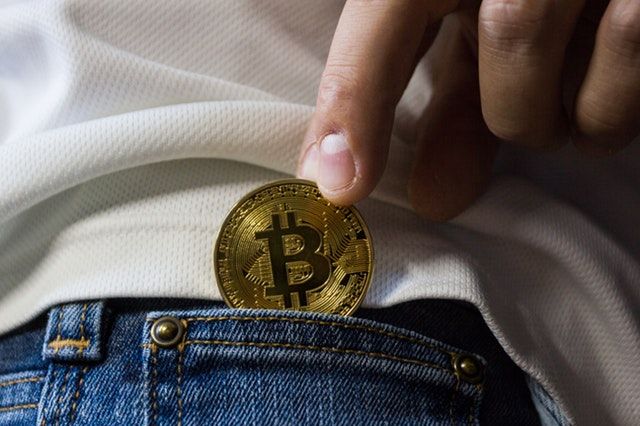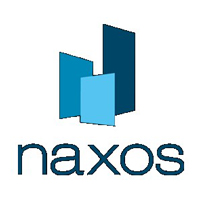
Bitcoins, Ethereum, BlockChain, GPU. For the past few months, you have surely seen or read these words somewhere. One thing they are all related to is the mining of cryptocurrency (or active crypto).
This buzz will be the subject of this article.
First, it is necessary to define all these words whose meaning may be vague or incomplete for most of us.
A crypto currency is a completely virtual currency that has no physical form. It represents an alternative form of asset, with its own mechanisms and economy. Like any other form of currency,
we can use it for many purposes, such as purchases, exchanges, transfers, or savings. As the name suggests, crypto currencies are all encrypted and accessible only through a key whose use is
reserved for the owner of the assets. Crypto currencies are also quoted with a price specific to each. There are several ways to obtain it.
First, "mine" it yourself. That is, to set up an infrastructure and use the computing power of your machines to write operations and add them to the blockchain.
This consists of large-scale computing in exchange for a certain payment (indexed to the price of the asset concerned). You'll need to equip yourself
with specific hardware and in particular GPU processors (or graphic cards).
Unlike simple CPUs, you will benefit from a computing power adapted to mining which requires the ability to repeat parallel operations. To increase your profitability, we suggest you use
a professional hosting company. This will help you benefit from an adapted infrastructure and optimal resources. Ikoula is positioned on this point by defining itself as
"Blockchain Friendly".
It is also possible to obtain cryptocurrency by purchasing it on one of the many specialized platforms. It will cost you, depending on the cryptocurrency. As a reminder, to date,
1 Bitcoin costs a little over € 7,300, but prices are very volatile when it comes to crypto assets.
Bitcoin is one of the forms of this alternative currency, and it is the most widespread and popular form.
He's been getting a lot of attention recently due to his ever-changing course
(between $ 5,000 and $ 20,000 in a few weeks). Created in 2009 by an anonymous who responds to the pseudonym of Satoshi Nakamoto, bitcoin quickly made a name for itself for several reasons.
In the first place, it appeared as a digital alternative to traditional currencies. The blockchain technology on which it is based is very secure. Indeed, it ensures encrypted, tamper-proof,
and anonymous operations. Yet, due to its special nature, bitcoin is not yet subject to financial and banking regulations, and anonymity provides worrying. For example, it quickly became
the benchmark currency on the "darknet" where many illegal transactions are concentrated. Although this tarnished its image somewhat, Bitcoin was a real revolution, and many businesses have since adopted it as well.
As the phenomenon has grown in popularity, other cryptocurrencies have quickly emerged. Today there are more than 1300 forms, each with its own particularity. Besides simple trading,
the uses of cryptocurrency have multiplied. We are going to study a few cases that caught our attention.
The phenomenon of ICOs is raising funds using cryptocurrency. This consists in exchanging "tokens" against crypto currencies. You can use your tokens by exchanging them for services
(goods or services) provided by the before-funded project. In effect, this can be akin to a pre-order from the company you choose to finance.
Even though mining requires very little manpower, we have found a humanitarian purpose. Let’s look at the case of UNICEF, they launched recently a fundraising campaign with the video gaming community.
Mining requires significant computing power and a machine equipped with one or more
GPUs (to include graphics cards).
These elements are also sought after by the community of "gamers".
The NGO, thus, had the idea to appeal to this population for its last campaign. Players who wish (the operation runs until March 31, 2018) can make part of their computing power available
to mine Ethereum and donate it to UNICEF.
Along with Bitcoin or Ethereum, it seems relevant for us to take an interest in other forms of crypto assets that are less known, but as interesting.
For example, SolarCoin, launched in early 2014, encourages people to install solar panels. SolarCoin also records the amount of energy produced by your installation. Users are then paid.
This innovative solution has several attractive aspects. Besides contributing the ecological effort, you also reduce the impact the mining activity produces
(which can sometimes be quite energy-intensive).
In another register, we will now focus on RIPPLE, an active crypto that is much more discreet than Bitcoin, but still in full expansion. The latter does not work with a blockchain,
but with a protocol of its own. The price of this currency jumped over 36,000% in a year, making it one of the best performing cryptocurrencies.
This success is due to how the RIPPLE has been designed.
The company behind RIPPLE still owns 2/3 of this currency, which makes it much less volatile than its alternatives. Thus, the RIPPLE seduces by the confidence it can inspire, especially in Asia,
the region of the world most fond of crypto assets. The RIPPLE also has a bright future in development. Indeed, the payment protocol that comes with it (RTXP: Ripple Transaction Protocol) can
be applied to other forms of currency (classic as virtual). This protocol has therefore become the apple of the eyes of the major global banks. They see it as a perfect replacement for SWIFT,
the system that currently governs money transfers between countries. When a transfer takes several days with SWIFT, it takes a few seconds with RIPPLE, the costs are also considerably reduced.
In conclusion, after this brief overview of cryptocurrencies and their uses, it is however necessary to qualify. Cryptocurrencies represent an innovation that might change or replace our
current systems. Yet, we still don't know the regulations that will govern the mining, use, or sale of these new currencies.
As we have seen with Bitcoin, the price of these currencies is very volatile. It is necessary to be careful when investing in.
If you want to hop on this crypto train, know that it is always preferable to host your infrastructure in a DataCenter. It ensures maximum resources and high-performance hardware, as
well as the necessary maintenance of this hardware.
Tags:

 Visit
Visit  Naxos
Naxos Markethings
Markethings DataTourisme
DataTourisme


Add new comment